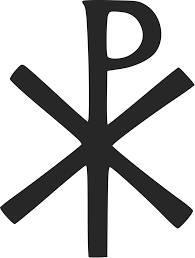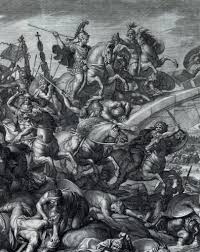Where does one even begin, as events outpace our capacity to absorb and assimilate them?
The U.S. Senate, by a rather slim majority (52 to 48) has confirmed Mrs. Amy Coney Barrett as the newest member of the Supreme Court of the United States. We should bridle our enthusiasm, for if our hope is not in armies, arms and horses, as Scripture sayeth, still less in the arm of lawyers or courts, supreme or otherwise. The theme of the Book of Judges is that we should not place our hope in judges, but rather in God. There is some concern over some of her Kennedy-esque statements on the them of her faith not influencing her judicial decisions – precedents and all that. At some point, sheer moral sanity must take over, before we mutilate another gender-confused child, or murder another one in the womb. Then again, the Almighty does work through secondary agents, and we may hope that things may improve, or at least the slide off the cliffs of insanity may be slowed for a time, and half a time.
The fallout from Pope Francis’ comments on homosexual civil unions in his recent biopic continue to wreak what havoc they might, however they were intended. And his recent appointment of 13 new cardinals – 9 of whom are of voting age (under 80) – brings the college of this august body up to 232 by my counting. Of those, 129 may now cast a ballot in the next conclave (unless some turn octogenarian in the meantime), which is 9 over the current limits of canon law. Can the Pope waive that? Well, with ‘supreme, universal authority’ it seems he can, and might – but I leave that for the lawyers. Certainly, there now seem to be a plurality of the cardinals are on board with whatever agenda Pope Francis has under his pectoral cross. Things don’t seem to be boding well, but, again, we should recall that the Holy Spirit has ways and means of moving events, and even the hearts of the most dogmatically unorthodox, which we know not.
After all, this is the traditional anniversary of the pagan emperor Constantine’s ‘vision of the cross’, as described, in different ways, by the contemporary historians Lactantius and Eusebius (the latter, he claims, from the emperor’s own mouth). On the eve of the battle of the Milvian Bridge in October of 312, Constantine saw in the sky (or a dream) the ‘sign of the cross’, in some accounts with the ‘Chi-Rho’, the first two letters of Christ’s name in Greek, superimposed, with the voice of God telling him Ἐν Τούτῳ Νίκα – ‘in (or through) this sign you will conquer’.

Constantine had the symbol engraved on the shields of his soldiers, and conquer they did, over the persecuting pagan Maxentius – who, somewhat symbolically, drowned in the Tiber – after which Constantine legalized Christianity by the Edict of Milan the following February (313), and was himself eventually baptized on this deathbed, by the aforementioned Eusebius, in 337.
Who would have thought, back in 303, in the midst of the worst of persecutions under Diocletian, that such would ever come to pass, and ‘Rome’ would become synonymous with ‘Catholicism’? (No jokes, please – whatever the current state of the Vatican, the Bishop of Rome is still the Vicar of Christ, and Rome still the centre of Christendom, from now unto the end…).
So, trust in God and praise Him still – that is our primary task, to be found doing what is our duty; He will act in His own good time.











